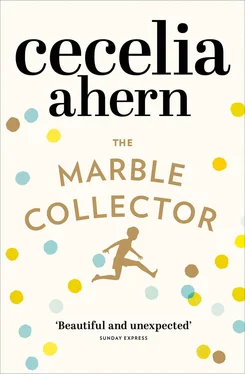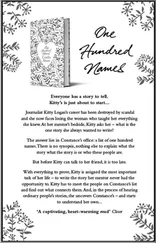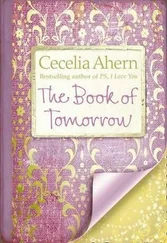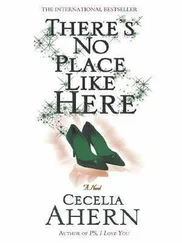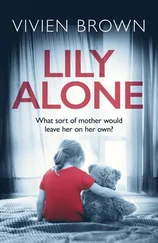


Published by HarperCollins Publishers Ltd
1 London Bridge Street
London SE1 9GF
www.harpercollins.co.uk
First published in Great Britain by HarperCollins Publishers 2015
Copyright © Cecelia Ahern 2015
Cover layout design © HarperCollins Publishers Ltd 2015
Cover design by Heike Schüssler
Cecelia Ahern asserts the moral right to be identified as the author of this work.
A catalogue copy of this book is available from the British Library.
This novel is entirely a work of fiction. The names, characters and incidents portrayed in it are the work of the author’s imagination. Any resemblance to actual persons, living or dead, events or localities is entirely coincidental.
All rights reserved under International and Pan-American Copyright Conventions. By payment of the required fees, you have been granted the non-exclusive, non-transferable right to access and read the text of this e-book on screen. No part of this text may be reproduced, transmitted, down-loaded, decompiled, reverse engineered, or stored in or introduced into any information storage and retrieval system, in any form or by any means, whether electronic or mechanical, now known or hereinafter invented, without the express written permission of HarperCollins.
Source ISBN: 9780007501847
Ebook Edition © May 2016 ISBN: 9780007501830
Version: 2018-06-22
For my Sonny Ray
I saw the angel in the marble and I carved until I set him free.
Michelangelo
Table of Contents
Title Page
Copyright
Dedication
Epigraph
Prologue
Chapter 1: Playing with Marbles
Chapter 2: Pool Rules
Chapter 3: Playing with Marbles
Chapter 4: Pool Rules
Chapter 5: Playing with Marbles
Chapter 6: Pool Rules
Chapter 7: Playing with Marbles
Chapter 8: Playing with Marbles
Chapter 9: Pool Rules
Chapter 10: Playing with Marbles
Chapter 11: Pool Rules
Chapter 12: Playing with Marbles
Chapter 13: Pool Rules
Chapter 14: Playing with Marbles
Chapter 15: Playing with Marbles
Chapter 16: Pool Rules
Chapter 17: Playing with Marbles
Chapter 18: Playing with Marbles
Chapter 19: Playing with Marbles
Chapter 20: Pool Rules
Chapter 21: Playing with Marbles
Chapter 22: Pool Rules
Chapter 23: Playing with Marbles
Chapter 24: Pool Rules
Chapter 25: Playing with Marbles
Chapter 26: Pool Rules
Chapter 27: Playing with Marbles
Chapter 28: Pool Rules
Chapter 29: Playing with Marbles
Chapter 30: Pool Rules
Chapter 31: Playing with Marbles
Chapter 32: Pool Rules
Chapter 33: Playing with Marbles
Epilogue
Acknowledgements
Keep Reading …
Reading Group Questions
Q&A with Celia
About the Author
Also by Cecelia Ahern
About the Publisher

When it comes to my memory there are three categories: things I want to forget, things I can’t forget, and things I forgot I’d forgotten until I remember them.
My earliest memory is of my mum when I was three years old. We are in the kitchen, she picks up the teapot and launches it up at the ceiling. She holds it with two hands, one on the handle, one on the spout, and lobs it as though in a sheaf-toss competition, sending it up in the air where it cracks against the ceiling, and then falls straight back down to the table where it shatters into pieces, murky brown water and burst soggy teabags everywhere. I don’t know what preceded this act, or what came after, but I do know it was anger-motivated, and the anger was my-dad-motivated. This memory is not a good representation of my mum’s character; it doesn’t show her in a good light. To my knowledge she never behaved like that again, which I imagine is precisely the reason that I remember it.
As a six-year-old, I see my Aunt Anna being stopped at the door by Switzer’s security as we exit. The hairy-handed security guard goes through her shopping bag and retrieves a scarf with its price tags and a security tag still on it. I can’t remember what happened after that; Aunt Anna plied me with ice-cream sundaes in the Ilac Centre and watched with hope that every memory of the incident would die with each mouthful of sugar. The memory is vivid despite even to this day everyone believing I made it up.
I currently go to a dentist who I grew up with. We were never friends but we hung out in the same circles. He’s now a very serious man, a sensible man, a stern man. When he hovers above my open mouth, I see him as a fifteen-year-old pissing against the living room walls at a house party, shouting about Jesus being the original anarchist.
When I see my aged primary school teacher who was so softly spoken we almost couldn’t hear her, I see her throwing a banana at the class clown and shouting at him to leave me alone for God’s sake, just leave me alone , before bursting into tears and running from the classroom. I bumped into an old classmate recently and brought the incident up, but she didn’t remember.
It seems to me that when summoning up a person in my mind it is not the everyday person I think of, it is the more dramatic moments or the moments they showed a part of themselves that is usually hidden.
My mother says that I have a knack for remembering what others forget. Sometimes it’s a curse; nobody likes it when there’s somebody to remember what they’ve tried so hard to bury. I’m like the person who remembers everything after a drunken night out, who everyone wishes would keep their memories to themself.
I can only assume I remember these episodes because I have never behaved this way myself. I can’t think of a moment when I have broken form, become another version of myself that I want and need to forget. I am always the same. If you’ve met me you know me, there’s not much more to me. I follow the rules of who I know myself to be and can’t seem to be anything else, not even in moments of great stress when surely a meltdown would be acceptable. I think this is why I admire it so much in others and I remember what they choose to forget.
Out of character? No. I fully believe that even a sudden change in a person’s behaviour is within the confines of their nature. That part of us is present the whole time, lying dormant, just waiting for its moment to be revealed. Including me.
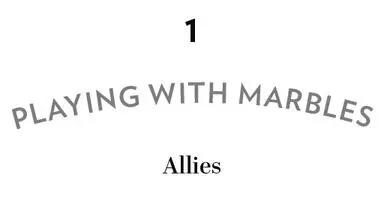
‘ Fergus Boggs!’
These are the only two words I can understand through Father Murphy’s rage-filled rant at me, and that’s because those words are my name, the rest of what he says is in Irish. I’m five years old and I’ve been in the country for one month. I moved from Scotland with Mammy and my brothers, after Daddy died. It all happened so quickly, Daddy dying, us moving, and even though I’d been to Ireland before, on holidays during the summer to see Grandma, Granddad, Uncle, Aunty and all my cousins, it’s not the same now. I’ve never been here when it’s not the summer. It feels like a different place. It has rained every day we’ve been here. The ice-cream shop isn’t even open now, all boarded up like it never even existed, like I made it up in my head. The beach that we used to go to most days doesn’t look like the same place and the chip van is gone. The people look different too. They’re all wrapped up and dark.
Читать дальше
